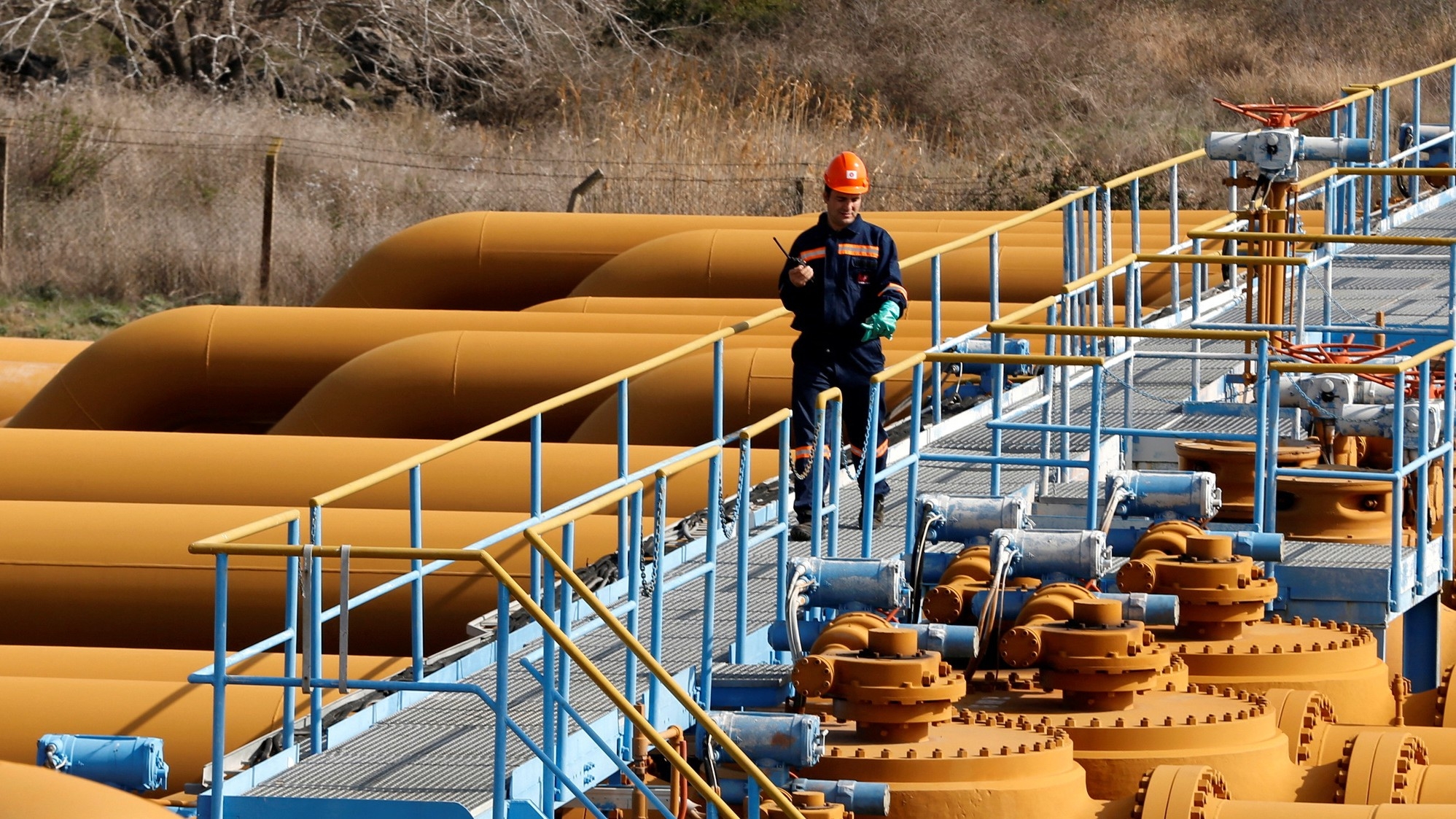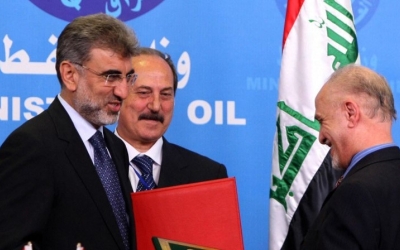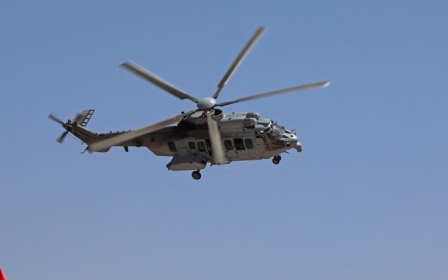'Hollow victory': Iraq is not really a winner in the Turkey oil arbitration case

When the International Court of Arbitration ruled on Thursday that Turkey breached contract by directly trading oil with Iraq’s Kurdistan Regional Government beginning in 2013, and asked Ankara to pay $1.4bn, Baghdad was very quick to declare a triumph.
The Iraqi oil ministry released a statement commending the court, and Iraqi officials quickly and openly relayed their talking points to local and international media. Turkey also halted the pumping of Iraqi crude oil through Ceyhan on Saturday morning, half a percent of global oil supply.
However, western and Turkish sources familiar with the court case paint a different picture. They say Baghdad is curtailing the full scope of the judgement on the Iraq-Turkey Pipeline (ITP) agreement, which was signed in 1973, that governs the export of Iraqi oil to Turkey through the Turkish port of Ceyhan.
“They can celebrate all they want, but I would definitely fire their lawyers for a botched job,” one western source who was briefed about the court case told MEE. “They claimed breach of contract under five categories: storage, transportation, exclusive use, access claim and loading. They were only able to win their claim for loading.”
The court case is seen as a legal challenge that intersects a commercial dispute with national and international politics, as Iraq says one of its components, KRG, doesn’t have direct authorisation to sell oil through the pipeline, as agreed by Ankara and Erbil in 2013, and pocket the income.
New MEE newsletter: Jerusalem Dispatch
Sign up to get the latest insights and analysis on Israel-Palestine, alongside Turkey Unpacked and other MEE newsletters
Baghdad in 2014 sued Turkey and asked for $33bn compensation for the loss of revenue and damages. Last month, they asked for $58bn compensation from Ankara for all the oil sales that have been made until 2022, according to the sources. But in the end the court only granted them a $1.4bn award for the 2014-18 period, pending interest rates.
'Neither parties successful'
The sources said the court decided that KRG is an organ of the Iraqi government, therefore a legitimate entity under the ITP deal. “So Turkey wasn’t in fault while storing and transporting the oil under the instructions of KRG,” the western source said. “Their claim of loss of damages under the exclusive use was also denied, they asked for the full compensation of the oil sale income and lost.”
The sources said the court decided that Turkey only breached the contract by loading tankers with the oil that was transported to Ceyhan port under the instructions of the KRG, because the 2010 amendment to ITP makes clear that the Iraqi Oil Ministry and its corporation Somo are the only legitimate authorities that could issue orders for loading.
'Even the court agrees in its judgment that neither parties could be considered as successful'
- Western source
Through this breach, the court evaluated whether Ankara overcharged transportation fees to Iraq and whether it got an unrightful discount on the oil price and issued an award to Baghdad. However the court ruled that 50 percent of the loss of income due to the discounted oil price must be borne by the Iraqi government, since KRG, as an organ of the Iraqi government, profited through the sales and used them for the state expenditure.
“Another issue that Baghdad doesn’t want to talk about is Turkey’s counterclaims over a set of issues from the low capacity at the pipeline and unpaid transportation fees going back to decades,” a second western source said. “The court awarded nearly $600m to Turkey because of them.”
The source added that Turkey’s counter claims would carry more weight when the US-denominated interest rates are calculated and added to the total sum since they go back to the 90s where the rates were higher. “The Iraqi claims, which only go back to 2014-18, won’t have the same interest rate surplus, eventually they will only get a few hundred million dollars,” the source said. “It is a hollow victory. Even the court agrees in its judgment that neither parties could be considered as successful.”
A Turkish source who is familiar with the 2013 KRG and Turkey oil agreement said that eventually no money would come out of Ankara’s pocket since the deal includes an indemnity clause. “Any award would be paid by the KRG, therefore by the Iraqi party,” the source said.
The development has already raised tensions between Turkey and the KRG since the latter basically runs its government services through the oil income, which was over $5.7bn last year.
Iraq's federal court also ruled last year that the law regulating the oil industry in Iraqi Kurdistan was unconstitutional, and demanded that Kurdish authorities hand over their crude supplies.
But the Turkish officials expect that a deal between all the parties involved would be reached in due time and the oil exports would resume.
One Turkish official familiar with the past negotiations said Turkey aimed to drag the case once it understood that a settlement wasn’t likely with Baghdad because it doesn’t want KRG representatives in the room.
“We even proposed to build them a sophisticated water management system, irrigation, dams and others which had a $5bn price tag,” the official said. “But they couldn’t get themselves to approve it. Because there are other centres of power in Iraq other than the government.”
Middle East Eye delivers independent and unrivalled coverage and analysis of the Middle East, North Africa and beyond. To learn more about republishing this content and the associated fees, please fill out this form. More about MEE can be found here.





